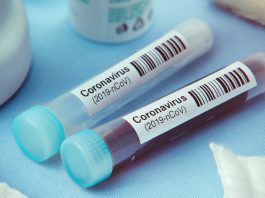Many scientists have received funding to solve issues associated with the recent COVID-19 pandemic, a large portion of the funding has been provided by programmes, like Horizon 2020.
Horizon 2020 is the predecessor of the European Commission’s new funding programme, Horizon Europe, which is due to launch in 2021. Horizon Europe has the proposed value of €100bn, this funding could become vital to combatting global crises.
In the second round of negotiations for the United Kingdom and the European Union, representatives will be addressing the future relationship between both parties. This will include the UK’s participation in EU programmes such as Horizon Europe.
If Horizon Europe were to follow the path of Horizon 2020, further collaboration between nations could be essential to further combat COVID-19.
How important is international collaboration to reducing the effects of COVID-19?
In times of global crisis, international collaboration is incredibly important to not only secure the economy, but to ensuring the health and security of the population.
In conversation with Innovation News Network, Carsten Welsch, coordinator of Horizon 2020 projects OMA and AVA, said: “To develop a prototype solution to a market-ready product, academic and clinical institutions need to be connected with appropriate industry partners; European Framework Programmes have an excellent track record in achieving this across multidisciplinary research areas.
“Access to international platforms for scientists and researchers to store, share and analyse research (eg COVID) data is important. By working together, they can improve testing and treatment. They can also share their expertise to develop a vaccine.
“There have been a number of excellent examples of how sharing resources (hospital places, PPE, ventilators, suitable airplanes, helicopters and trains for transport of critical patients) benefits all involved.
“I would like to stress that a similar approach will be required for essentially all of the identified ‘global challenges’. Participation in Horizon Europe will allow the UK to continue to have a lead role in these studies.”
Which Horizon 2020 projects address COVID-19?
In order to better understand the impact that Horizon Europe will have on global challenges, it is important to understand how Horizon 2020 has influenced the response to the recent pandemic.
Horizon 2020 has funded a variety of projects that aim to further reduce the impact of COVID-19. As a response to the outbreak, the European Commission launched an emergency request for projects that will advance our understanding of the novel coronavirus, offering €10m in funding. These projects include:
- OPENCORNA is a joint project between Cobra Biologics, a contract manufacturing organisation for biologics and pharmaceuticals, and Karolinska Institutet, a Swedish medical university. Horizon 2020 awarded the research consortium €3m for the research and development of a vaccine against COVID-19.
- APEPTICO’s proprietary cyclic peptide solnatide to treat late-stage COVID-19 patients is currently being funded by Horizon 2020. The phase II lead compound, solnatide (AP-301) is currently being developed for the treatment of life-threatening acute pulmonary dysfunction and pulmonary oedema in ARDS patients.
- PREPARE ensures research preparedness of clinical treatment sites and the use of harmonised research protocols across Europe through their network of 3000 hospitals and 900 laboratories in 42 countries.
- EVAg, a successor project EVA-GLOBAL, has already made available more than 1000 kits that support the diagnosis of the novel coronavirus, to 79 countries worldwide.
Emergency research funding from global organisation have allowed us to know more about the disease. Mariya Gabriel, European Commissioner for Innovation, Research, Culture, Education & Youth said: “I am proud that following the progress made during the last years, our supercomputer centres stand ready to help researchers in their work to develop new treatment and vaccines.”









